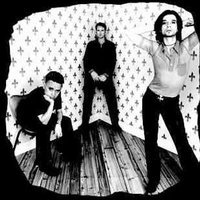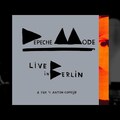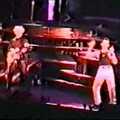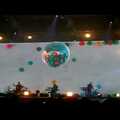The British synthpop pioneers - singer Dave Gahan, guitarist-keyboardist Martin Gore and keyboardist Andy Fletcher - are marking their fourth decade in the music industry with the release of "Delta Machine" on March 26.
"We've always been pessimists at heart, so we never think further ahead than whatever's coming next," Gore, 51, told Reuters at the South by Southwest Music Conference this week.
The band has sold more than 100 million records worldwide since its 1981 debut album "Speak & Spell," thanks to hits along the way like 1984's "People are People" and 1989's "Personal Jesus."
Depeche Mode's textured sound and moody lyrics made it one of the biggest bands to emerge from the British New Wave in the early 1980s, alongside groups such as The Boomtown Rats.
The title "Delta Machine" reflects the musicians' contradictory sounds - they're influenced by the Delta blues, but they also use technology like computers and synthesizers.
"We feel like our music is a blend of organic and inorganic," Gore said.
NEW TOUR, NEW APPROACH
The band's appearance at the SXSW conference is unusual, as was its performance on "The Late Show with David Letterman" this week. Depeche Mode has typically gone straight from rehearsal to tour without leaving time to properly promote a new album, Gore said.
"You'd think that we would have done that at some point in this career, but we haven't," he said, referring to promoting albums prior to release.
Depeche Mode will embark on its 17th tour in Tel Aviv on May 7, with the North American leg scheduled to begin in Detroit on August 22.
Gore, having spent a significant part of the last three decades on the road and given up drinking seven years ago, said touring these days is different.
"The last tour I really enjoyed because it was the first one that I'd really been lucid enough to take in everything and enjoy the concerts and then enjoy the cities the next day," he said. "So I'm really looking forward to this one."
Life has also improved for Gahan, 50, a former heroin addict who attempted suicide in 1995, almost died after an overdose in 1996 and got sober about two years later.
"My life has just progressively got better," Gahan told an audience at conference. "I feel like I participate in it in a very different way."
Asked how he manages to remain so active on stage, Gahan replied that when he gets up in front of people who have bought tickets, he does his best to entertain them.
There's nothing worse, he said, than performers on stage staring at their shoes while wearing "camping clothes."
"This is rock and roll," Gahan said.





